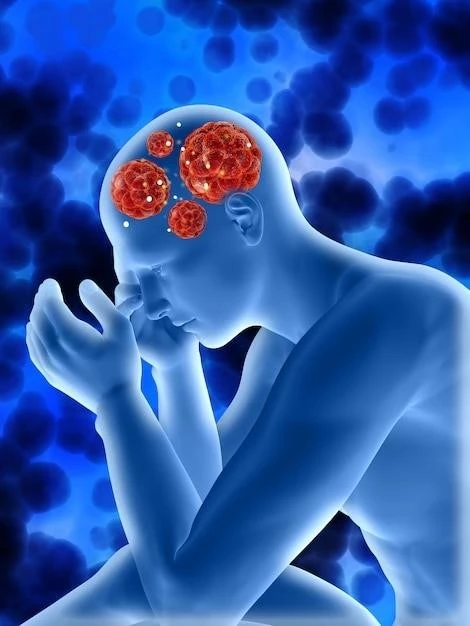Introduction
Motor neuron disease can affect either upper motor neurons (UMNs) or lower motor neurons (LMNs)․ This condition describes a collection of clinical disorders, characterized by progressive muscle weakness and the degeneration of the motor neuron․
Defining Motor Neuron Disease
Motor neuron disease (MND) encompasses a group of neurological disorders that impact specific cells responsible for controlling voluntary muscle movement․ These diseases can involve the upper or lower motor neurons, leading to progressive muscle weakness and atrophy․ One well-known form of MND is amyotrophic lateral sclerosis (ALS), which affects both upper and lower motor neurons․
MND is a degenerative condition where motor neurons in the brain and spinal cord deteriorate, resulting in muscle weakness and eventually paralysis․ While there is no cure, treatments aim to manage symptoms and enhance quality of life for individuals living with MND․

Symptoms and Types
Motor neuron disease can affect either upper motor neurons (UMNs) or lower motor neurons (LMNs)․ This condition describes a collection of clinical disorders, characterized by progressive muscle weakness and the degeneration of the motor neuron․
Characteristics and Progression
Motor neuron disease involves the progressive degeneration of motor neurons, leading to muscle weakness, atrophy, and eventually paralysis․ This condition can affect upper or lower motor neurons, impacting voluntary muscle control․ The disease manifests with varying patterns of muscle weakness and can result in significant challenges in movement and daily activities․
As the condition progresses, individuals may experience difficulty walking, speaking, swallowing, and breathing․ The gradual deterioration of motor neurons contributes to the worsening symptoms and functional limitations over time․ Understanding the characteristic symptoms and the disease’s progressive nature is crucial in diagnosing and managing motor neuron disease effectively․
Types of Motor Neuron Diseases
Motor neuron disease is a term encompassing various conditions that affect the motor neurons, leading to muscle weakness and degeneration․ Some well-known forms are amyotrophic lateral sclerosis (ALS), primary lateral sclerosis (PLS), progressive muscular atrophy (PMA), progressive bulbar palsy, pseudobulbar palsy, and monomelic amyotrophy (MMA)․ Understanding the different types of motor neuron diseases is crucial for accurate diagnosis and tailored treatment approaches․
Causes and Risk Factors
While the exact cause of motor neuron disease is not fully understood, potential triggers include genetic mutations, environmental factors, and the accumulation of protein aggregates in motor neurons․ Certain risk factors may contribute to the development of the disease, highlighting the complex interplay between genetic predisposition and environmental influences․
Potential Triggers
The potential triggers for motor neuron disease include genetic mutations, exposure to environmental toxins, viral infections, autoimmune reactions, and oxidative stress․ These factors may contribute to the onset and progression of the disease by damaging motor neurons and disrupting their normal function․ Research continues to explore the interplay between these triggers and the development of motor neuron disease․
Genetic and Environmental Factors
The causes of motor neuron disease are not fully understood, but researchers point to a complex interplay of genetic mutations and environmental factors that may contribute to its development․ Genetic abnormalities can disrupt motor neuron function, while environmental triggers like toxin exposure can further exacerbate neuronal damage․ Understanding the role of these factors is crucial in unraveling the mysteries of motor neuron disease․

Diagnosis and Prognosis
The diagnosis of motor neuron disease involves a thorough clinical evaluation, neuroimaging studies, and electromyography․ Despite its progressive nature, prognosis varies based on the specific type of motor neuron disease and individual factors․ Understanding the diagnostic process and prognostic indicators is essential for effective management and support planning․
Diagnostic Process
The diagnosis of motor neuron disease involves a comprehensive evaluation that includes clinical examination, electromyography (EMG), nerve conduction studies, and imaging tests such as MRI․ Neurological assessments assess muscle strength, reflexes, and coordination, while EMG helps identify abnormalities in nerve function․ Additionally, ruling out other conditions that mimic motor neuron disease is crucial for an accurate diagnosis․
Prognostic Indicators
The prognosis of motor neuron disease varies based on the age of onset, subtype of the disease, and the rate of progression․ Factors such as the extent of motor neuron degeneration and the presence of respiratory muscle weakness can influence the prognosis․ Additionally, early diagnosis and personalized treatment plans play a crucial role in managing the disease and improving outcomes for individuals affected by motor neuron disease․
Treatment Options
Management approaches for motor neuron disease focus on symptom relief, enhancing quality of life, and providing supportive care․ While there is no cure, treatments may include medications, physical therapy, respiratory support, speech therapy, and nutritional assistance․ Multidisciplinary care teams play a crucial role in addressing the complex needs of individuals living with motor neuron disease․
Management Approaches
When addressing motor neuron disease, management approaches focus on symptom relief, maintaining functional abilities, and improving quality of life․ Treatments may involve medications to manage symptoms such as muscle cramps and stiffness, physical and occupational therapy to retain muscle strength and function, assistive devices to aid mobility and communication, and nutritional support to prevent weight loss and malnutrition․ Multidisciplinary care teams collaborate to provide comprehensive care tailored to each individual’s needs in managing motor neuron disease․
Supportive Care
In managing motor neuron disease, supportive care plays a crucial role in addressing the evolving needs of individuals affected by the condition․ Supportive care focuses on enhancing comfort, managing symptoms, providing emotional support, and improving the overall quality of life for patients and their families․ Palliative care services may also be integrated to offer holistic support and optimize the well-being of those living with motor neuron disease․
Ongoing Research and Developments
Current studies and trials in the field of motor neuron disease focus on understanding the disease mechanisms, exploring potential therapeutic targets, and investigating novel treatment strategies․ Researchers are working towards developing innovative interventions to slow disease progression, improve symptom management, and enhance overall quality of life for individuals affected by motor neuron disease․
Current Studies and Trials
Researchers are conducting current studies and trials to investigate the underlying mechanisms of motor neuron disease and explore potential therapeutic interventions․ These studies aim to develop innovative approaches to slow disease progression, alleviate symptoms, and improve the overall quality of life for individuals affected by motor neuron disease․ By advancing scientific understanding and treatment options, ongoing research offers hope for better outcomes in the management of this complex neurological condition․
New Therapeutic Avenues
Ongoing research into motor neuron disease is exploring new therapeutic avenues to target the underlying mechanisms of the disease․ Novel treatment strategies aim to slow disease progression, alleviate symptoms, and enhance quality of life for individuals living with motor neuron disease․ By investigating innovative approaches, researchers are working towards improved outcomes and better management of this complex neurological condition․
